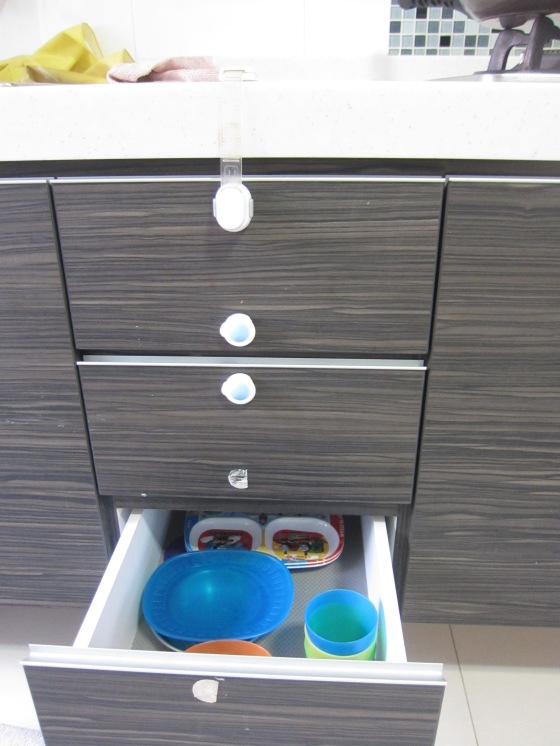(I am working on an overarching ‘theory’ which ties together all that I have read and found useful. But first, more background information with this summary/review.)
Complete with clear explanations, age-appropriate strategies for dealing with day-to-day struggles, and illustrations that will help you explain these concepts to your child, The Whole-Brain Child shows you how to cultivate healthy emotional and intellectual development so that your children can lead balanced, meaningful, and connected lives. By Daniel J. Siegel, M.D., and Tina Payne Bryson, PH.D.

According to the authors, tantrums, meltdowns, aggression, and most of the other challenging experiences of parenting are a result of a loss of integration. For example, when the kid isn’t integrated, he becomes overwhelmed by his emotions.
The key purpose of the book is to help parents help the child achieve integration among the different parts of the brain, i.e. the left brain that helps you think logically, the right brain that helps you experience emotions, the “reptile brain” that allows you to act instinctually and make split-second survival decisions, and a “mammal brain” that leads you toward connection and relationships.
So, sometimes when children throw tantrums and seem to be behaving illogically, it’s because they are mainly under the influence of their right brain or their ‘downstairs’ brain (“reptile brain”) at that moment. This means that no amount of logical explanation will work, and the solution is to first connect with their right brain, by listening and comforting.
This has helped me to decide how to respond when the kids seem to be behaving in an unreasonable manner. I have a problem with being too consistent – I used to never give in because I did not want to reinforce my children’s tantrums. But this book helped me change that as it allowed me to see ‘which battles to fight’, for want of better words. Example:
The boys are allowed to play with my iPhone for a few minutes every night as reward for good behaviour. One night, Didi got very upset cos Kor Kor kept disturbing him and touching the screen while it was Didi’s turn to play. When the timer went off, Didi refused to return my phone. In the past I would have insisted he return and just take the phone away and remind him his time was up, no matter how much he cried.
Instead, I sat him on my lap and allowed him one more round of the phone. Watched him play and helped him along when he asked for help. Mainly, protected him from Kor Kor the Menace, whom I warned strictly to stay away until Didi finished playing.
When the timer went off again, Didi returned me my phone willingly. And the big smile on his face told me that I did the right thing! He was happy, he felt comforted and loved! We proceeded with bedtime stories, and I was very happy he went to bed feeling good. No problems with returning the phone on time the next day either : )
(If not for Kor Kor’s interference, I would not have allowed Didi to continue playing with the phone no matter how upset he was. I would have just held him and soothed him instead.)
I guess the key is to differentiate when the child is truly upset, too upset to listen to and process our attempts to reason with him, and when the child is merely pretending to be upset and trying to manipulate the parents. The book suggests that if the child instantly ‘recovers’ once he gets what he is asking for, he is likely to be manipulating. For instance, if the child is crying and screaming that he wants to eat ice cream, and immediately stops crying when the parent gives in, that is probably a manipulative stunt. I have encountered many occasions when the boys couldn’t calm down even when the problem was resolved, such as when we gave them the toy which they couldn’t find, and they still kept crying. I guess the logical solution of helping them search for the toy didn’t help when they were ‘drowning’ in their right-brain emotions or functioning from their downstairs brain.
That was the first of the twelve strategies in the book, called Connect and Redirect. This strategy consists of two steps – first to connect with the right brain, then to redirect with the left brain. After the child calms down after connecting with the right brain, it will be easier to talk with him about logical explanation and planning for solutions.
Strategy #2: Name It to Tame It: Telling Stories to Calm Big Emotions
I like this strategy as well. When a child experiences painful, disappointing, or scary moments, she might be experiencing overwhelming emotions. When this happens, the parents can help bring the left hemisphere into the picture so that the child can begin to understand what’s happening. They need to use their left brain to make sense of what’s going on – to put things in order and to name these big and scary right-brain feelings so that they can deal with them effectively. To tell a story that makes sense, the left brain must be involved to use words and logic.
They might have to go through this storytelling a few times for the left brain to integrate properly with the right brain. There might also be times when the child is not ready to tell the story yet. We can gently encourage them by beginning the story, and if they are not interested, we can give them space and talk later.
For younger kids, the parent might have to help them put the narrative details in order, with the child answering certain questions with specific answers.
Strategy #3: Engage, Don’t Enrage: Appealing to the Upstairs Brain
When the child acts up, we can choose to engage the upstairs or trigger the downstairs. The example given in the book is a child refusing to eat his food. The parent can choose to be firm and just command the child to “eat or you won’t get any dessert”, which will trigger the downstairs brain. The child might comply but it’s likely that he will feel angry and that it is unfair. The parent might exhibit sufficient authority that the child will not rage or show his unhappiness and just do as instructed, but he will still have those unhappy feelings in him.
Alternatively, the parent can choose to engage the upstairs brain by asking the child how much he thinks he should eat since he does not want to finish his food. The child has to use his upstairs brain since he has to think of a way to negotiate. Of course, sometimes negotiations are inappropriate and it’s up to the parents to decide when to allow room for negotiation.
Strategy #4: Use It or Lose It: Exercising the Upstairs Brain
Give the children opportunities to exercise their upstairs brain by:
- Let them make (some) decisions for themselves.
- Teach them to remain in control of themselves even when upset.
- Foster self-understanding in them by asking questions that help them look beyond the surface of what they understand, e.g. why do you think you made that choice?
- Ask questions that encourage the consideration of another’s feelings, e.g. why do you think that baby is crying?
- Offer hypothetical situations to cultivate morality, e.g. would it be ok to run a red light in an emergency?
Strategy #5: Move It or Lose It: Moving the Body to Avoid Losing the Mind
When the downstairs brain has taken over the upstairs brain and the child feels overwhelmed and helpless, body movement helps to release some negative energy and tension, so that emotional balance returns and the different parts of the brain can function in an integrated way again.
Strategy #6: Use the Remote of the Mind: Replaying Memories
I find this somewhat similar to Strategy #2. But instead of telling a story soon after the incident, perhaps an experience was not properly processed. The negative experience then left implicit memories, which the brain ‘sorta’ remembers and these implicit memories affect the child’s behaviour subconsciously. The solution is to revisit the experience by talking about it, so that the child can recall what happened more clearly, and shift it into explicit memory, and thus deal with the issues that surface.
(Sounds a bit psychoanalytic? Hmm, but since the authors are relating it to brain science, I see it more as cognitive psychology.)
Strategy #7: Remember to Remember: Making Recollection a part of Your Family’s Daily Life
We can improve the child’s ability to integrate implicit and explicit memories by giving them lots of practice at remembering – by having them talk about their experiences. For instance, we can ask them questions that lead to recollection about their day.
Strategy #8: Let the Clouds of Emotion Roll By: Teaching that Feelings Come and Go
It is important for children to understand that feelings are temporary, changing conditions, so that they will not get stuck when they feel scared or sad or lonely.
Strategy #9: SIFT: Paying Attention to What’s Going On Inside
Children need to be aware of what they are experiencing – Sensations, Images, Feelings, Thoughts. Only when they are aware then they can deal with them.
Strategy #10: Exercise Mindsight: Getting Back to the Hub
Using calming and/or visualization techniques to focus attention on positive aspects.
Strategy #11: Increase the Family Fun Factor: Making a Point to Enjoy Each Other
OK, this sounds very basic and like something which any parenting book would suggest. But it’s very scientific ok. When we have fun with the children by roughhousing or engaging in pretend play with them, a chemical in their brain called dopamine is produced. Dopamine is somewhat the reason why people maintain a certain habit or addiction, and by producing dopamine during family fun interactions, the child becomes “addicted” to family relationships. We are providing them with positive reinforcement about what it means to be in a loving relationship with others.
The fun-factor principle also applies to sibling relationships. Recent studies have found that the best predictor for good sibling relationships later in life is how much fun the kids have together when they are young. The rate of conflict can even be high, as long as there’s plenty of fun to balance it out. The real danger comes when the siblings just ignore each other. Thus the parents can help things along by providing activities for the kids to have fun together.
Strategy #12: Connect Through Conflict: Teach Kids to Argue with a “We” in Mind
We can teach children to survive conflicts by:
- See through the other person’s eyes: help kids recognize other points of view
- Listen to what’s not being said: teach kids about nonverbal communication and attuning to others
- Repair: teach kids to make things right after a conflict

I like that at the end of each chapter, the authors included a section to help the parent teach the child what was covered in that particular chapter.













